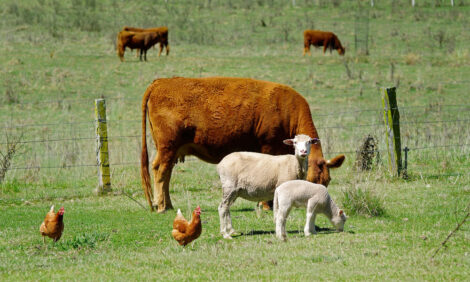



USDA sued over insufficient certification of labelling claims
Yesterday (14 November), the Animal Welfare Institute (AWI) sued the US Department of Agriculture for its unreasonable delay in responding to a 2014 AWI petition, which asked the agency to require independent certification of certain animal raising label claimsThe Administrative Procedure Act requires federal agencies to respond to petitions for rulemaking within a reasonable time. After four and a half years, the USDA has not responded to AWI’s petition.
“The USDA’s current policy surrounding the approval of animal raising claims on meat and poultry packages utterly fails consumers,” said Dena Jones, director of AWI’s farm animal programme.
AWI’s rulemaking petition, filed in May of 2014, asked the USDA to require third-party audits to substantiate holistic claims, such as “humane” and “sustainable,” so that consumers know these claims are verified prior to appearing on food labels. The use of these claims and others like “Animal Compassionate,” and “Raised with Care,” has increased in recent years, as consumers have become more concerned about the well-being of animals raised for food and the impact of industrial animal agriculture on the environment.
The USDA attempted to resolve problems with its label approval process in 2016 by issuing a guidance document related to animal raising claims. However, the document was so inadequate that more than 99 percent of commenters at the time were opposed to it. The guidance continued to allow for misleading claims and did not increase transparency. Moreover, as commenters noted, it carried no mandate for third-party certification of animal welfare and sustainability claims.
According to an October online survey of more than 2,000 US adults commissioned by AWI and conducted by The Harris Poll, 86 percent of meat/poultry/egg/dairy consumers agreed that the government should not allow the use of claims like “humanely raised” on food product labels unless verified by an independent inspection.
Eighty-nine percent of meat/poultry/egg/dairy consumers said the government should require more than a producer affidavit to use these claims on those types of products.
The USDA’s current practice for label approval consists of reviewing brief statements from producers testifying that they meet the USDA’s definition for the claim or accepting the producer’s own definition for undefined claims such as “humanely raised.”
Consumers also overwhelmingly oppose the USDA’s practice of allowing producers to create their own definitions for certain claims. According to a separate AWI-commissioned survey conducted by The Harris Poll in September 2018, 81 percent of frequent purchasers (4+ times per month) of animal products said that producers should not be allowed to set their own definitions for claims about how farm animals are raised.
AWI hopes this lawsuit will force the USDA to take much-needed action to address its failing label approval process. Requiring independent inspection by third parties will simplify the process and ensure that “humane” and “sustainable” claims made on food packages are vetted. Additionally, if the USDA requires third-party certification for animal welfare and sustainability claims, more producers will participate in these programmes and more animals will be raised under higher, more transparent care standards.
“For consumers concerned about farm animal welfare and environmental sustainability, third-party certification will provide much needed cues for making food choices that are consistent with personal values,” said Jones.












